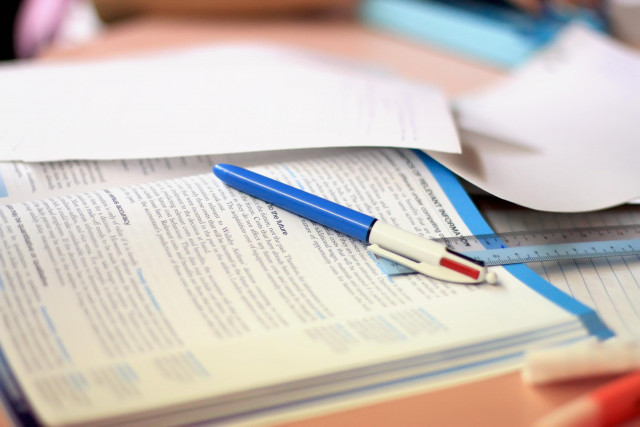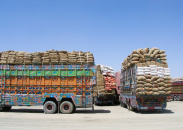Innovative solutions: Improving quality, access to education
Participants at an event share ideas than can be easily replicated.

Education adviser at UKaid-Pakistan, Atif Rafique said, “It is important that the lessons we learn as a result of implementing these innovations are adopted by the government”. PHOTO: FILE
The word innovation usually conjures up high-tech or state-of-the-art facilities, but sometimes a fresh perspective can help achieve the desired results with minimum expense. This was in evidence at Kuch Khaas, where members of the Education Innovation Alliance: Kitabon Se Agay, shared ideas for improving the quality of education and accessibility on Wednesday.
Arafat Majeed from National Rural Support Programme discussed the benefits of a second shift for girls from one to eighth grade in boys’ schools in Shikarpur. He stated that cultural constraints in rural Sindh was a real obstacle to co-education but starting a second shift in boys’ schools for girls was an initiative that not only increased enrollment in that shift but also in the morning shift.
“Community mobilisation, greater social interaction and government support led to education of 1,500 girls who had no access to education even though there were boys’ schools nearby,” he remarked.

Under the Children Global Network Pakistan’s programme, over 300 youth from urban and rural areas of Swabi, Mardan in Khyber-Pakhtunkhwa, have been trained. Mehnaz, one of the programme leaders said they trained youth to open, run or be part of low-cost private schools.
“Firstly, my parents would not allow me to participate in the programme and we also received threats but the experience changed my life dramatically. I’m now running a school in my area with support from locals,” said Inaz Begum, a trainer from Mardan who shared her story enthusiastically.
Children are either not going to school or if they are, they are not learning anything. As a result, they are not equipped with the tools required to succeed in the 21st century. To address this issue, Power 99 FM radio channel hass also started a programme, Broad Class-Listen to Learn for kindergarden and grade one in English and Mathematics in Haripur, Vehari and Islamabad. In this programme four characters teach students in 45 minutes basic words such as commands, actions, colours and modes of transport. Fakhra Najeem, who is a part of the project, stated that they were in talks with schools of Federal Directorate of Education to expand the programme. “Now we are also branching out in regional languages.”
Ilm Ideas, a programme funded by UKaid, supports and funds innovators who develop solutions fopr issues like poor quality of education in schools, high drop-out rates and teacher absenteeism. Zehra Zaidi, team leader for the Ilm Ideas programme stated that the projects aims to improve education for over 70,000 children and will eventually grow to benefit many more.”
Education adviser at UKaid-Pakistan, Atif Rafique said, “It is important that the lessons we learn as a result of implementing these innovations are adopted by the government.”
Tele Taleem team shared their project in remote areas of KP-Ilm on Wheels by giving access to children through online learning content through a satellite-enabled mobile van. Sarah from Family Educational Services Foundation shared idea to help hearing-impaired teens through development of a standard Pakistan Sign Language including visual dictionary, a book, and a mobile phone app.
Published in The Express Tribune, March 13th, 2014.



















COMMENTS
Comments are moderated and generally will be posted if they are on-topic and not abusive.
For more information, please see our Comments FAQ